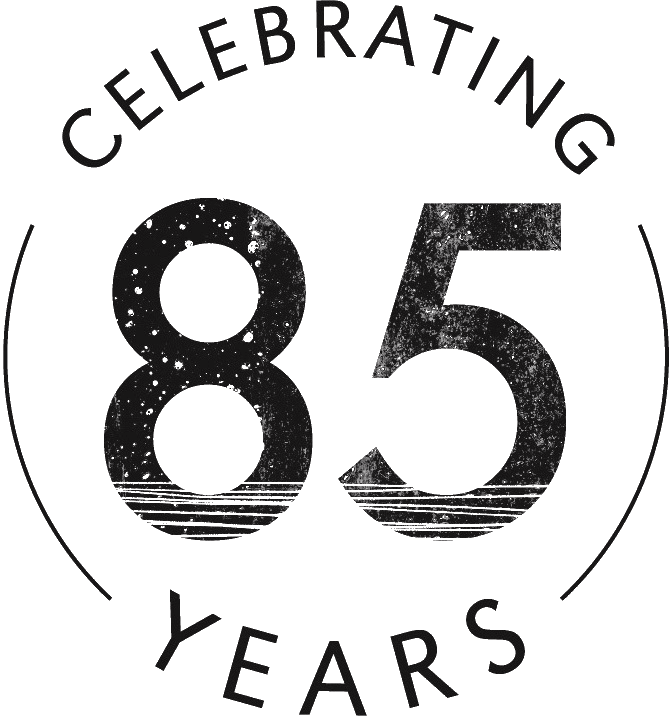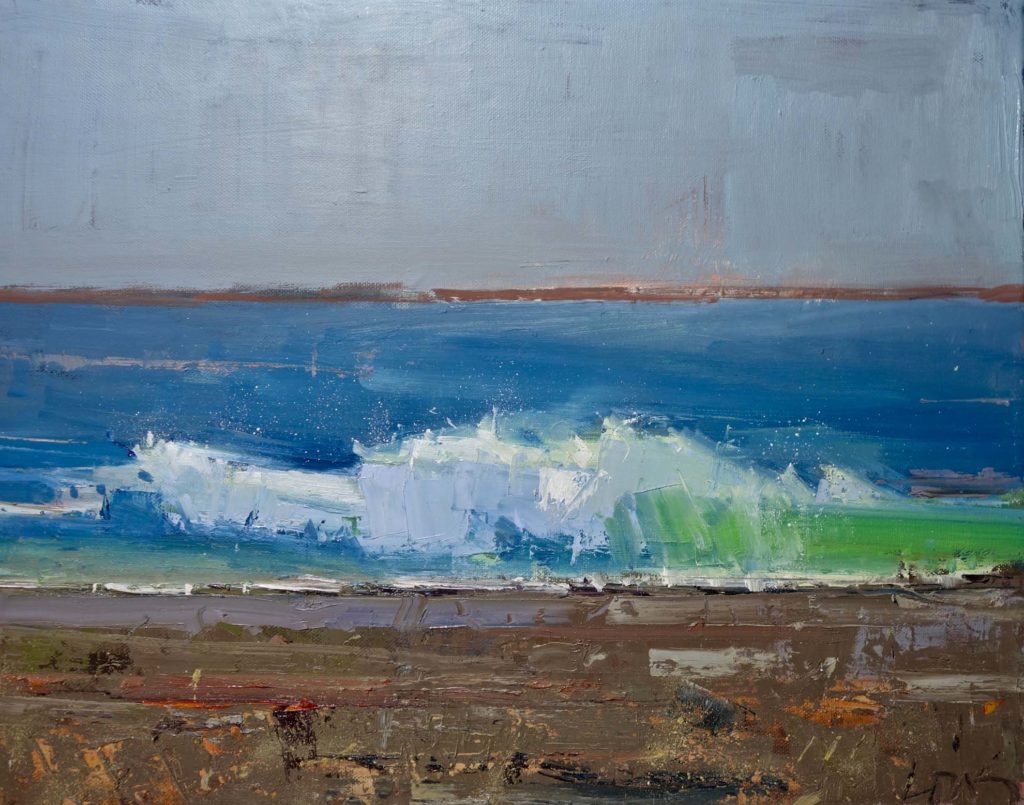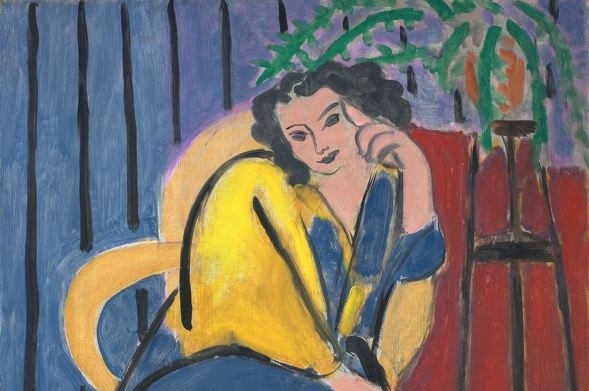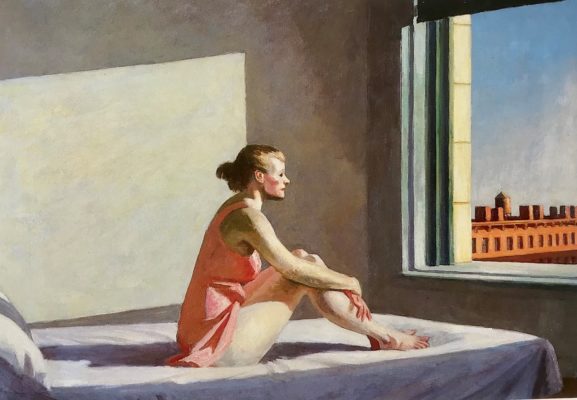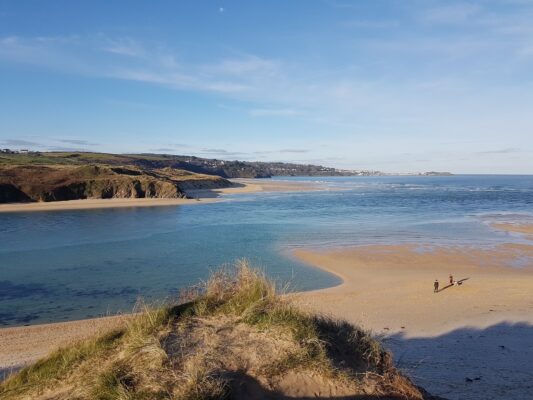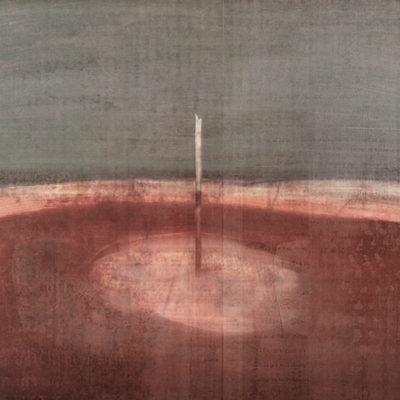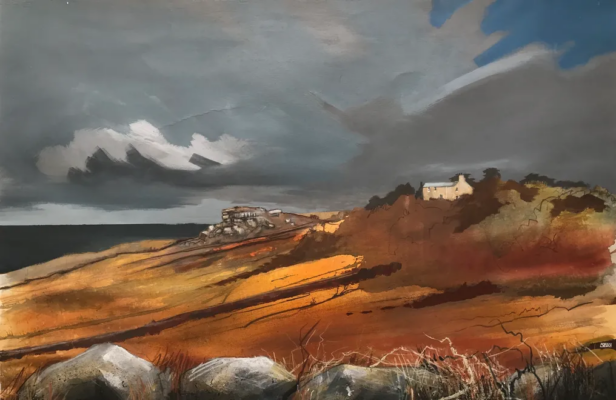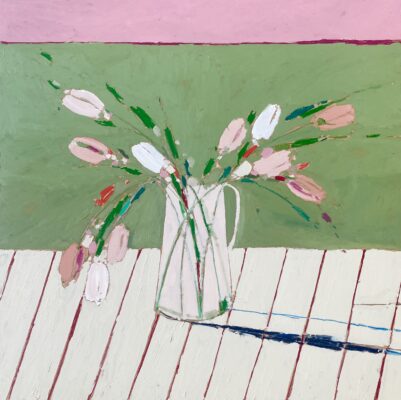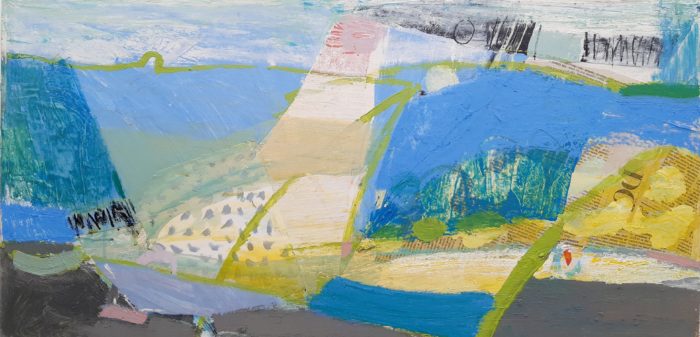This website uses cookies so that we can provide you with the best user experience possible. Cookie information is stored in your browser and performs functions such as recognising you when you return to our website and helping our team to understand which sections of the website you find most interesting and useful.
Course details
How to convey that fleeting moment when a wave crashes on the shore, its drama, energy and movement? Learn the secrets to capturing this dramatic encounter between sea and the land in oils.
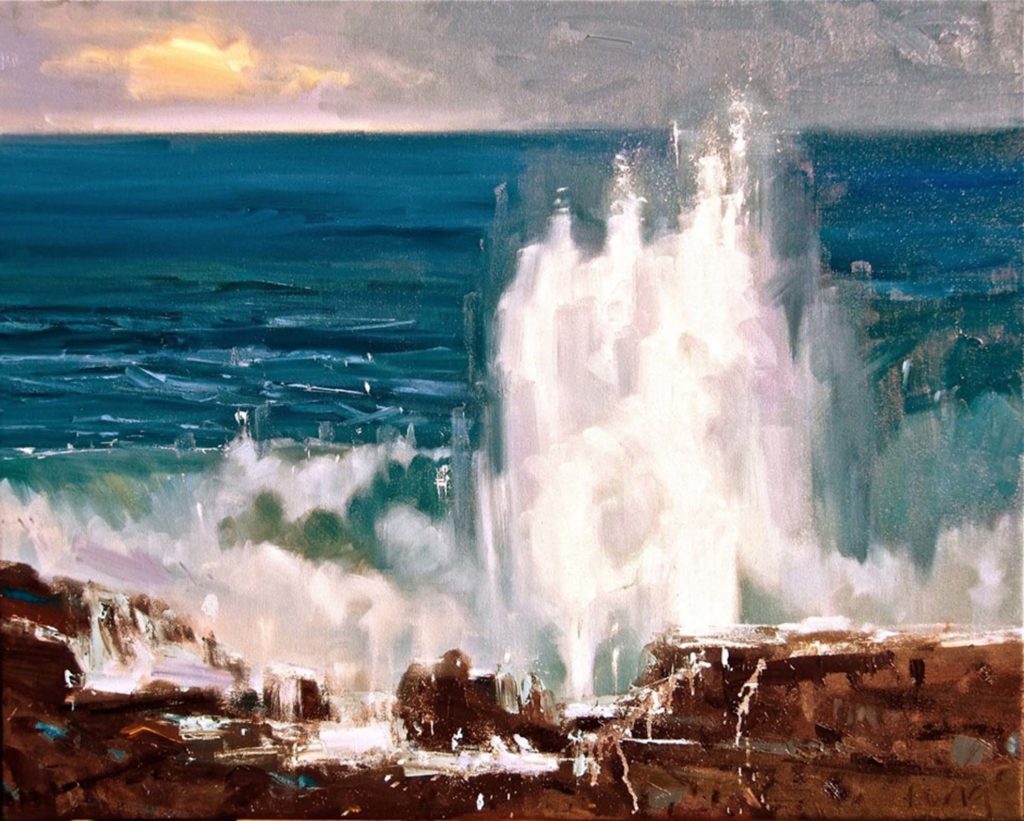
We record these live sessions so you can watch again on demand for 1 month after the course. Students will have the opportunity to ask the tutor questions during these live sessions as well as have access to a group forum on a secured course platform. This private online space is a chance for you and your group to connect with each other and share progress during the course.
You will need to gather your own materials for the course and have access to the internet. We will have staff on hand to assist with your connecting on Zoom with a dedicated tech session. You will receive a comprehensive handbook on setting up ready for the course covering equipment and materials.
Using an expressive approach in oils capture the dramatic encounter between the sea and the land. Wherever you are in the world transport yourself to the dramatic coastline around St Ives. Working from a video capturing a dramatic Cornish day on the coast, students and Gary will observe and sketch, learning how to work with gouache to make annotations on colour and weather. Develop these into lively and dramatic oil paintings. You will gain confidence in using tools, techniques and a limited palette to capture drama and movement. Use these skills to respond to whatever landscape inspires you, not just the coast.
Learn how to work with gouache to make annotations on colour and weather. Develop these visual notes and sketches into lively and dramatic oil paintings. You will gain confidence in using a limited palette and work with a palette knife to capture drama and movement.
Teaching will be through both pre-recorded video demonstrations that transport you to our studio here in St Ives as well as 4 live sessions with a small group. Gary works on his own piece during these so students can observe the process of development.
As well as benefiting from live demos you will have the added bonus of time in between sessions to practice what you have learnt and gain feedback from your group and Gary. The group is kept small at just 15 students and you will be able to interact will your fellow students at the live zoom sessions as well as on our image sharing platform.
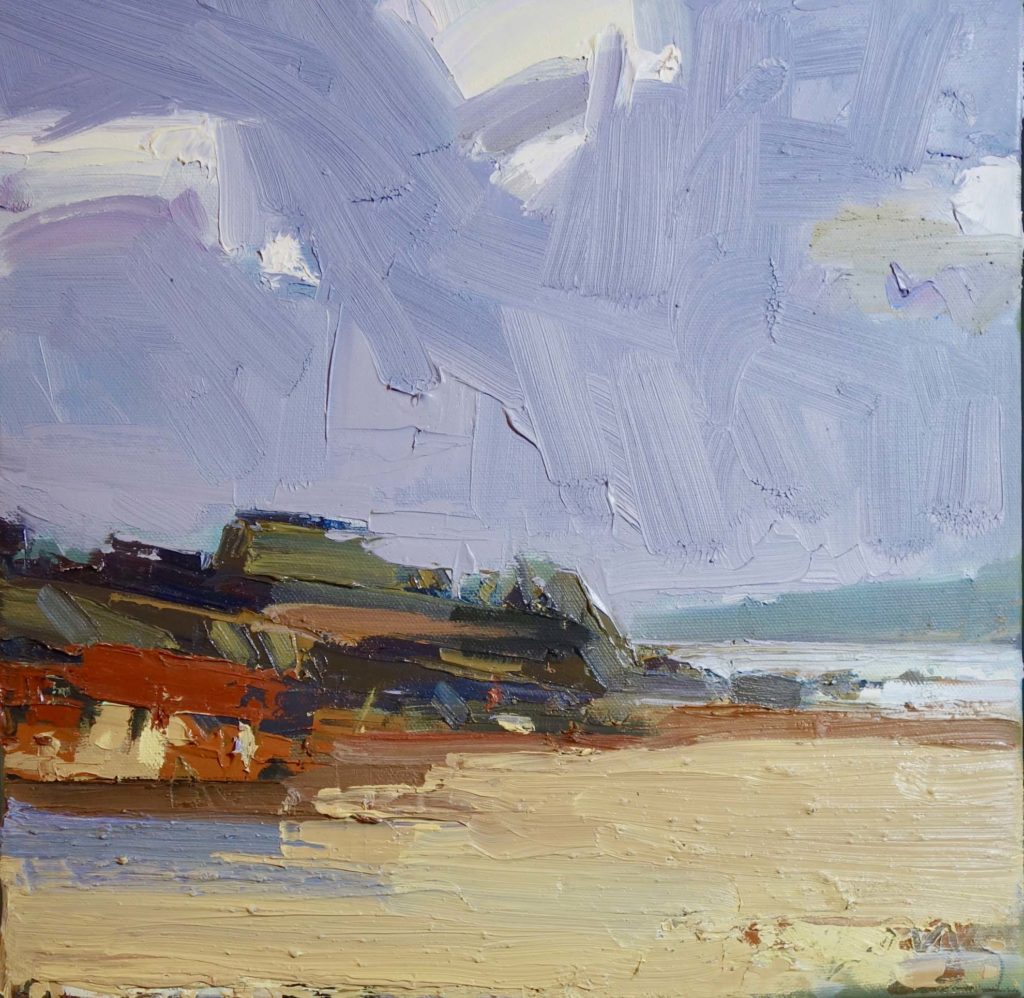
Painting by Gary Long 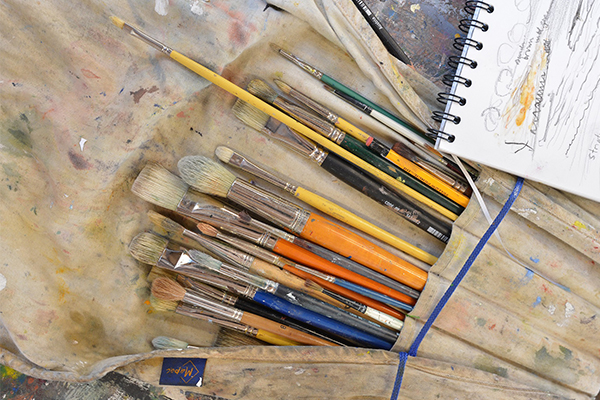
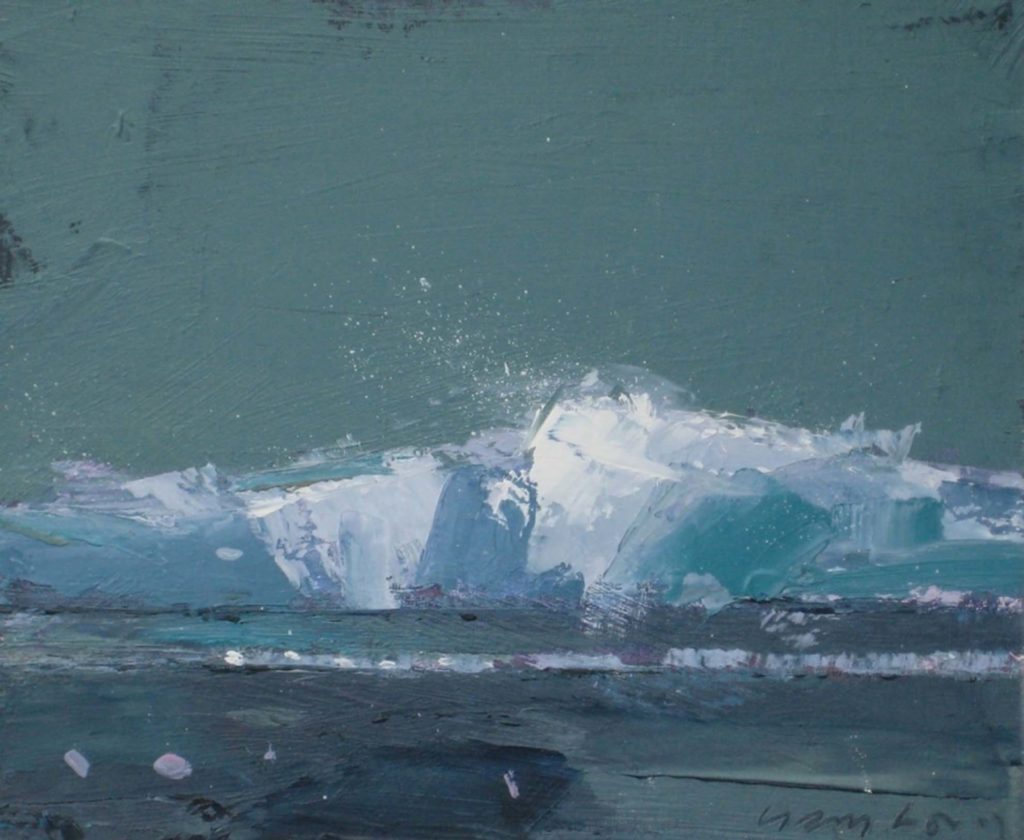
Painting by Gary Long 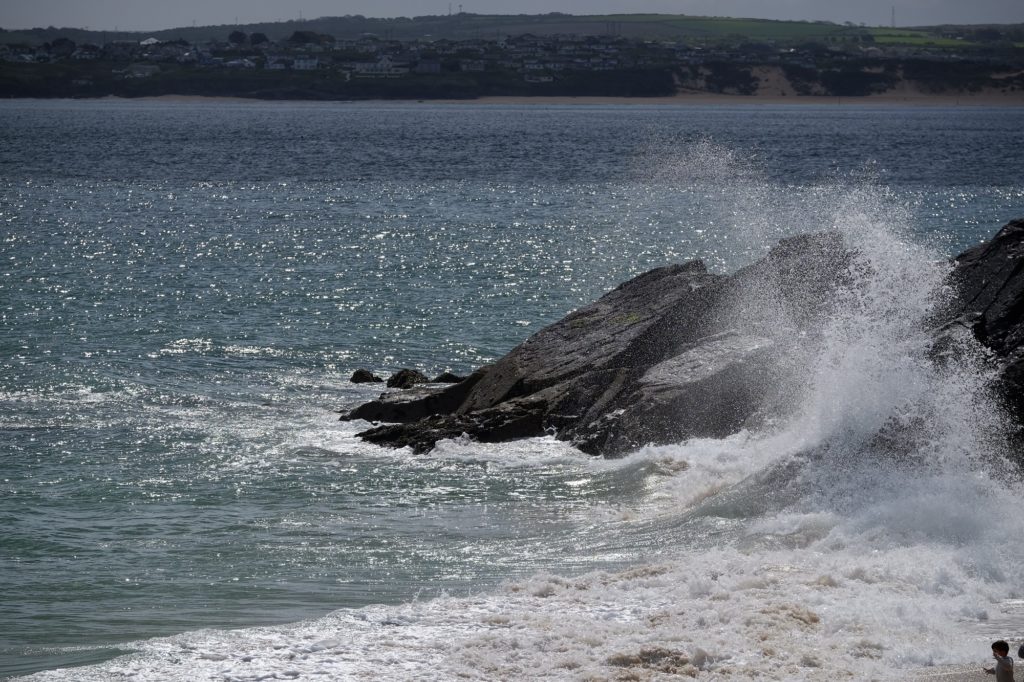
Day to day plan
This is a 2 week course and will work best for those that can commit time in between the live sessions. There is a combination of live, interactive sessions with Gary lasting two and a half hours as well as pre recorded videos to watch.
Upload images of your artwork to our proprietary course platform over the two weeks, so your class and tutor will be able to view, like and provide feedback.
Tech session
Live Zoom session Thursday 18th February 3pm – 4pm GMT
Technical induction with our digital administrator to ensure everyone is comfortable and ready for the first session.
Week 1 – Preparing the ground
In this first week you will work through in your own time a series of tasks to get ready for painting in the second week. Choose a local landscape of your own if you are able to draw outside or work from the recording we send you. There is one live session and pre-recorded instructional videos for this first week. Upload your studies onto our image sharing platform to share your progress with fellow students and Gary.
Monday 22 February– Observing closely
Live Zoom session 10.00am – 12.30pm GMT
Gary will meet you and your group and give you an overview of the course. In this first live session he will talk you through your first week and key tasks; the process of making an annotated drawing, a tonal study and working in gouache. Work from a video recording of a dramatic coastal scene. In the afternoon experiment with the drawing and tonal work. After the live session enjoy further instructional videos covering the key tasks for the day. Use this time to explore your local landscape if you can.
Tuesday 23 February – Moving into colour
Self study with instructional videos
In the morning you can move on to your third task. Access the video on how to move into colour using gouache. Spend the day experimenting with colour at home.
Wednesday 24 February – Experimenting
Self study
In your own time revisit the videos and work through this whole process again. Observe a landscape closely and create annotated notes, move into painting with charcoal and finally create a study in gouache. If you can, try out the process using your own local landscape. The more you experiment the more this will become second nature. Armed with lots of studies you will be ready to move into oils the following week.
Week 2 – Moving Into Oils
In this second week of study we move into painting with oils. Teaching is through three live interactive sessions. Upload your studies onto our image sharing platform to share your progress and get feedback from your fellow students and Gary.
Monday 1 March – Selecting image and palette
Live Zoom session 10.00am – 12.30pm GMT
Gary starts the session showing his own approach to working in oils. If you have an easel either desk or standing have this set up ready, otherwise work on the table. Gary will talk you through your materials and set up and how to start to put your drawing down on to the canvas. Learn to select and crop your colour study ready for this stage. Spend time creating your palette alongside Gary. In your afternoon practice your colour mixing so you have your palette ready for the next day.
Tuesday 2 March – Creating energy and movement
Live Zoom session 10.00am – 12.30pm GMT
Starting with a demonstration Gary will show you how to start your painting working with thin washes. Explore a range of mark making styles and tools to create a confident painting with movement and energy. In the afternoon in your own time continue to work on your painting.
Wednesday 3 March – Adjusting and resolving
Live Zoom session 10.00am – 12.30pm GMT
While students continue to work on their piece Gary will spend time with each student to look at the process of adjusting and resolving a painting. Share your piece with the group at the end of the day on the image sharing platform.
What you will get out of this course
- An understanding of the properties of oil paint so you can have more control of the paint and get the effect you want.
- Confidence in colour mixing so you can develop your own personal palette that you can recreate rather than rely on guesswork.
- The skills to develop paintings from drawing studies.
- Confidence in using a variety of tools and techniques to get a range of marks and effects. This will help you create paintings that are interesting and striking.
Who would this course suit?
Whether you are a complete beginner in oil paints or would like to build your confidence working with them, this course is a wonderful starting point. If you love painting landscape but feel stuck, this course gives useful tools for loosening up and animating your paintings.
Taught by
What to Bring
You will receive a comprehensive handbook on setting up ready for the course covering equipment and materials. We will guide you on how best to set up in your own home environment whatever that might be from the kitchen to the studio.
You will be provided with a full materials list and you will need to use oil paint and either low odour white spirit or Zest It, if you are sensitive to solvents.
IT Equipment
You will need a laptop or tablet with audio and camera enabled so you can have a screen near where you are working. A phone is not ideal as you will struggle to see enough. You will also need reasonable broadband connection and speed.
Timings and Breaks
On the Thursday before the course starts there will be technical session with our digital administrator to make sure you are comfortable with the technology and everything is working correctly. Times are in GMT.
Key Dates: Live Zoom Sessions
Pre Course Tech session – Thursday 18 February 3pm – 4pm
Session 1 – Monday 22 Feb 10.00am – 12.30pm
Session 2 – Monday 1 March 10.00am – 12.30pm
Session 3 – Tuesday 2 March 10.00am – 12.30pm
Session 4 – Wednesday 3 March 10.00am – 12.30pm
You will be set self-directed tasks to complete in between live sessions.
These classes will be recorded and available to view a couple of hours after the session ends so you can review and recap before the next morning session.
All recordings will be available for you to watch again on demand as many times as you like for one month after the course ends. This means you can review, pause, rewind and further develop your skills.
What our students say
It was well-structured and inspiring and it worked really well in every way!
FAQs
Online Broadcast
How can I get help in choosing a course?
Our friendly expert staff are always happy to discuss your needs and our courses in more detail to help you with your decision. Please call us on 01736 797180
Do I need a webcam/any equipment?
For our webinar sessions which are broadcast on the internet and no webcam or microphone is needed as you just need to be able to see/hear hosts and you can communicate using the chat function. You can watch using a PC, Smart TV or tablet. A phone isn’t ideal as you will struggle to see enough unless you can miracast to a screen or smart TV.
For the longer online courses on Zoom you will need a laptop or tablet with audio and camera enabled so you can have a screen near where you are working. If you have a PC without camera or speakers, you can purchase a plug and play webcam for approx £25 which connects to a usb port. You will also need reasonable broadband connection and speed.
All the art materials and equipment needed to participate in the course will be listed in full on the online learning platform, for live webinars this will be a minimum of two weeks before the session starts.
I have registered for the webinar but I can't find my joining link
You can access all the resources and joining link for your webinar via our online learning platform. You will need to have set up an account on our online learning platform in advance. You can do this during the checkout process when purchasing your webinar. If you are having trouble accessing your online account, please contact [email protected]. You can use a PC or tablet or even cast from your phone to watch on your Smart TV.
I paid for the session but missed it, how can I watch?
Currently all our online sessions are recorded and you can access the recording on our online learning platform until it expires. Usually 60 days for a webinar, 90 – 180 days for multipart webinars or online courses.
Studio Courses
How can I get help in choosing a course?
Our friendly expert staff are always happy to discuss your needs and our courses in more detail to help you with your decision. Please call us on 01736 797180
How do I get my work home?
Tutors have special techniques for transporting oil paintings and the school has plastic folders available in our shop for £3.50 or do bring a portfolio.
For international students we are happy to arrange transportation of your work back home.
What do I need to bring?
Absolutely nothing! All materials and aprons are provided although some people do like to bring their own set of brushes.
What do I do for lunch?
Courses allow an hour’s break for lunch and there are numerous places nearby or you are welcome to bring a packed lunch into the studio.
What times do courses run?
Most of our courses start at 10am and end at 4.30pm on the first day. Subsequent days we start at 9.30am ending at 4pm.
Weekend Courses run 10am – 4pm on the first day but the final day starts at 9.30 and ends at 3.30 with a short lunch break to enable people to get home that evening.
Do you have to be experienced to come to the School?
The School is a very friendly and welcoming place for all ages and experience. Our drop-in life classes and August half-day workshops are ideal for those wanting to have a go for the first time. Most of our longer courses are also fine for novices.
If any of the courses do need a bit of experience we flag this up in the brochure and on the website.
Booking a Course
How can I reserve a place?
We will hold a provisional reservation for 24 hours if you give us a call whilst you find accommodation. Otherwise please book online or by telephone 01736 797180.
You can reserve a place with a £100 deposit; balance is due 12 weeks before course start date.
About St Ives
Where do I park?
The nearest long stay public car parks are the Island and Barnoon Long Stay Car Park, both a 5 minute walk away. In the peak summer months it may be easier to park at Trenwith Car Park by the leisure centre and walk down into town. If you don’t fancy the walk up the hill at the end of the day there is a shuttle bus which runs from outside the cinema.
How do I get there?
Public Transport: If you are coming from further afield the main train line runs into St Erth which is a 15 min taxi ride away or you can take the St Ives Bay Line which runs approx. every 30 minutes. The School is a 10 minute walk from St Ives station.
Driving: M5 will take you to Exeter where we recommend that you take the A30 across Bodmin Moor and into Cornwall. After passing Hayle, leave the A30 at St Erth roundabout for St Ives. Turn right at the second roundabout. This road will take you through Lelant and Carbis Bay into St Ives.
Where can I stay?
St Ives has a huge selection of hotels, guest houses and self catering accommodation to choose from. Please browse the art holidays St Ives section on our website and give us a call if you would like any help.
